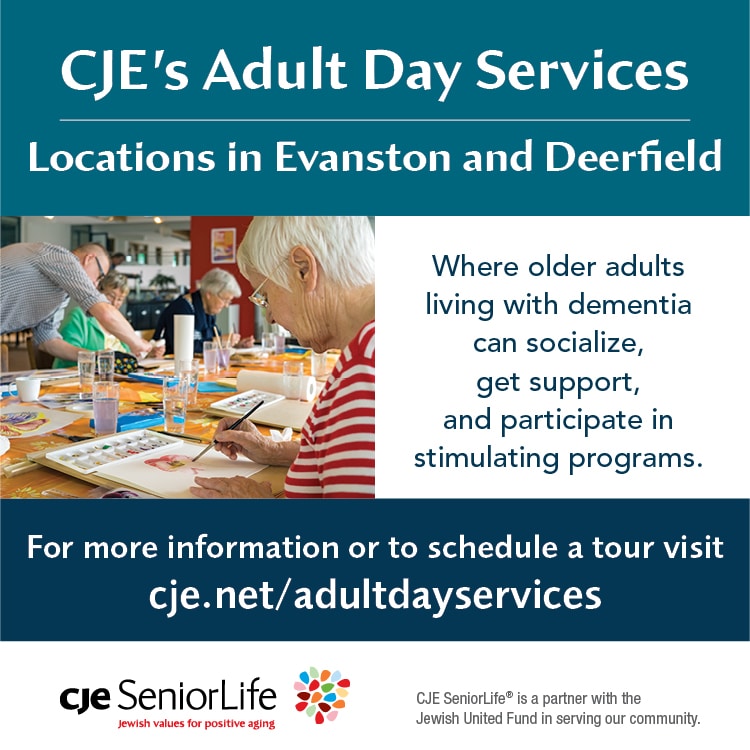Brain health relies on heart health
On a Sunday evening in September 2019, George Hristov headed for bed when he suddenly felt a tremendous pain grip his chest. His doctor had warned him about his high blood pressure and high cholesterol, but Hristov had largely written it off. Now, though, he took the warning signs of a possible heart attack seriously, especially because his wife, who has a family history of stroke, had recently gone through a similar scare with chest pain and shortness of breath.
Hristov headed to Northwest Community Hospital in Arlington Heights, less than a mile from his home. “I had ignored earlier warnings from my primary care doctor to control my high blood pressure, eat better and exercise,” Hristov says. He knew changes were imminent.
Fortunately, Hristov, 43, did not have a heart attack. Instead, the event — possibly related to his high blood pressure — spurred Hristov to follow the emergency room physician’s recommendation to see a cardiologist to learn how he and his family could improve their heart and brain health.
The heart-brain link
Both Hristovs made an appointment for an evaluation of atypical chest pain with Devin Mehta, MD, an advanced heart failure cardiologist and director of Northwest Community Hospital’s heart failure program. Mehta ordered more tests for Hristov and recommended lifestyle changes, such as moderate-high intensity exercising, changing his diet and decreasing stress.
Mehta also delivered another message: The lifestyle changes were necessary for both heart health and brain health.
Brain health rests on heart health. Diseases that clog the heart’s arteries can also clog arteries in the brain and the rest of the body.
“Cardiac function and living a heart-healthy lifestyle are intimately [connected] to brain function and cognitive stability over time,” Mehta says. It’s important to manage medical conditions that affect the heart and blood vessels — such as high blood pressure, high cholesterol and diabetes — and to manage lifestyle factors in order to prevent cognitive decline and promote well-being, Mehta adds.
Healthy blood pressure
Maintaining a healthy blood pressure is key to protecting the pump function of the heart, because high blood pressure increases the work of the heart.
“Blood pressure is a driving force of blood flowing through the blood vessels to the brain. Uncontrolled and high blood pressure can cause repeated injury to brain tissue,” Mehta says.
When the heart pumps blood through the vessels, it brings oxygen and nutrients to the brain and other major organs. Any reduction in the pump function of the heart that decreases cardiac output can diminish cognitive function, Mehta says.

Keeping arteries clear throughout the body helps maintain better blood flow. When arteries in the brain are not as clear as they should be, resulting problems may include memory loss, issues with word retrieval and changes in walking and balance, says Chad Yucus, MD, a neurologist with NorthShore University HealthSystem.
A compromised patient may have difficulty finishing sentences, recognizing words in conversation, searching for things around the house or following through with general household tasks, such as paying bills and taking medications.
“In the last five to 10 years, we are coming to understand that the processes that lead to dementia may not be separate from cardiac health but may share some similar pathways,” says John T. Wilkins, MD, a cardiologist at Northwestern Medicine’s Bluhm Cardiovascular Institute. “Heart health really affects brain health.”
Maintaining optimal levels of blood pressure, blood glucose, cholesterol and body weight improves vascular health and may help stave off brain disease, such as cognitive dysfunction and dementia, he adds.
Taking advice to heart
Hristov took charge of his health. Throughout his life, he has constantly felt pressure to out-work and out-perform others to be successful. Born in Bulgaria, he arrived in the U.S. when he was 14 years old. He took care of his mother after a drunk driver killed his father when Hristov was 15.
Now the co-founder of a lending business and a private equity financier, Hristov jumped into action. He started working out every day, lifting weights and cycling. He lost 10 pounds by switching to a plant-based diet, cutting out meat, eating fish twice a week and adding lentils and beans to his diet.
Hristov now sleeps better and keeps his stress level as low as possible. His blood pressure dropped from 200/100 to 120/70 (normal blood pressure is 120/80 or less, according to the American Heart Association). His habits have rubbed off on his two young sons, who do push-ups with him every morning.
Hristov advises others to take ownership of their health and make changes to cut their risk factors — in hopes of better health for the heart and the brain.
Infographic by Erin Sullivan. Originally published in the Spring/Summer 2020 issue.

Betsy is a freelance writer whose work has appeared in national and local magazines, as well as online. She’s an avid runner and triathlete.












